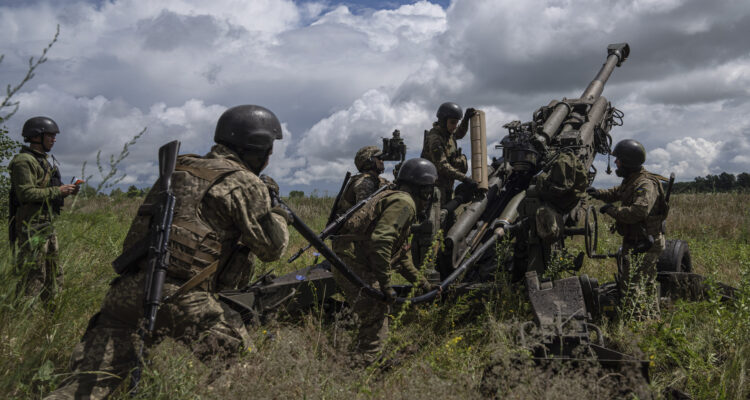Most of the American stockpile that unofficially serves as Israeli backup has gone to Ukraine.
By Batya Jerenberg, World Israel News
Israel’s emergency ammunition supply is running low due to the war in Ukraine and could become an area of concern in case of a multi-front crisis, Israel Hayom reported Thursday.
Jerusalem depends on what are officially American stockpiles that are based in the country for possible use in a Middle East conflict and enjoy diplomatic immunity. This is because there has been a decades-long silent understanding that in case of real need, the IDF could dip into this supply.
It is a historic concern for the army, dating back to the 1973 Yom Kippur War, when the country was invaded by both Egypt and Syria and had to beg Washington to send military supplies quickly because it was running out. President Nixon agreed and a month-long airlift brought in artillery, ammunition, spare parts and even tanks in what was called Operation Nickel Grass.
It was first reported in January that the U.S. was steadily shipping out some 300,000 of its Israeli-stored artillery shells to Kyiv because American companies were not revving up fast enough to stream to Ukraine all that it needed in its fight against the Russian invasion. Washington also tapped its pre-positioned supplies in South Korea to fulfill its commitment to Kyiv’s defense.
Senior Israeli officials said at the time that Washington had promised to replenish the supplies, but an American defense official has now told Israel Hayom that “it is still not clear when the reserves will be restocked.”
This could become a problem for the Jewish state, a former Israeli cabinet minister told the Hebrew daily.
“These are Israel’s reserve stockpiles for times of war,” the minister said. “The move has had a bigger implication in light of the threats on Israel in multiple theaters.”
The most obvious tactical threats come from Hamas in Israel’s southwest and Hezbollah to its north. Although the two terror organizations have not challenged Israel simultaneously in the past, there are signs of closer cooperation between them.
After Hamas launched 44 rockets over the Gazan border on April 5 and the IAF bombed its sites in retaliation, Hamas fired 34 more rockets at Israel the next day from Hezbollah-controlled territory in Lebanon. A Palestinian militia then took credit for launching six rockets at Israel from Syria two days after that. A meeting also took place that same day in Beirut between the most senior Hamas and Hezbollah leaders.
While in all these incidents, the Iron Dome anti-missile system took care of any projectiles heading for Israeli population centers, the possibility of a coordinated, three-prong attack cannot be easily dismissed.
This is especially so considering that Israel’s ultimate strategic threat, Iran, is financing both Hamas and Hezbollah, the latter of which is already part of the Lebanese government and has many troops in Syria, helping to prop up the Assad regime. Iranian forces are directly in charge of many military sites themselves in Syria as well. If Tehran’s mullahs ever decide to seriously engage its hated “Zionist enemy,” it has many strings that it can pull, and Israel knows it.





